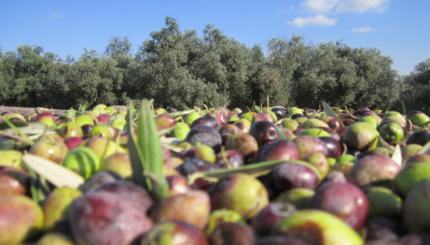It took me about five minutes into meeting the fabulous Sean Altman to blurt out: “Ispentfiveyearsofmylifewatchingyou!”
To children of the ’80s, Sean is better known as the lead singer of Rockapella and the live doo-wop soundtrack of the TV show Where in the World is Carmen San Diego?. To more recent audiences, he’s known as Jewmongous, singer of  not-safe-for-prime-time hits like “Be My Little Shabbos Goy,” “Jews for Jesus,” and “Christian Baby Blood.” But every time I look at the dude, it’s hard not to imagine him in a day-glo shirt, tweed hat, and spotted suspenders.
not-safe-for-prime-time hits like “Be My Little Shabbos Goy,” “Jews for Jesus,” and “Christian Baby Blood.” But every time I look at the dude, it’s hard not to imagine him in a day-glo shirt, tweed hat, and spotted suspenders.
I met Sean at the Conversation, which was essentially the closest true thing to the Protocols of the Elders of Zion — basically, a bunch of smart or creative or interesting Jews who got together to brainstorm about the future of Judaism. Most of the people there were heads of organizations, philanthropists, Jewish ideamakers. Sean just seemed to end up in the mix. He became the sort of everyman voice — only, he was much swifter, smarter, and funnier than anyone gave everyman credit for. I quickly abandoned my plans to hitch a ride back to New York with Shmuley Boteach, who just had Lasik eye surgery, and instead hitched a ride with Sean.
On the way back, he confided to me about his lack of Jewish knowledge. Half the people there were huge Jewish-wisdom mavens, and the other half were scholars on Hebrew or Israel or Jewish culture. “And I’m just some schmuck who doesn’t even know what Simchas Torah is,” he said.
“But that’s just it,” I replied — and then explained to him that nobody knows what Simhat Torah is. Shemini Atzeret is the day after Sukkot. Literally, it translates to “the assembly of the eighth day.” That’s pretty much all we know about it — except, as it’s mentioned in the haftarah, when it says that King Solomon rejoiced with all the people in the Temple, and then left them to go return to their communities and continue the celebration on that day.
More colloquially, we still ask ourselves, what is it? The rabbis will often tell us, it’s a day of meaningless celebration — we want to prolong the happiness of Sukkot, the celebration that we’re free and alive and happy. And, since all 1-day holidays are converted into 2-day holidays outside of Israel — and since calling a two-day holiday “the assembly of the eighth day” would be kind of weird — the rabbis turned it into a wholehearted celebration of the Torah (which, inside Israel, is concluded and restarted on Shemini Atzeret) and named it “Simhat Torah.” Not just the “Happy Holiday,” like our other appellation for Sukkot, but “the happiness of Torah.”
Or, in other words: Simhat Torah really isn’t anything — except what makes us happy.
Which brings us back to Everyman. Sean Altman has his own versions of the holidays. You can download his Rosh Hashanah interpolation, Blow, Murray, Blow — or you can watch a live version of what certain people have claimed is the only pop-ska song about Simchat Torah. It’s entitled, appropriately, “What the Hell Is Simchas Torah?”
Rosh Hashanah
Pronounced: roshe hah-SHAH-nah, also roshe ha-shah-NAH, Origin: Hebrew, the Jewish new year.
Torah
Pronunced: TORE-uh, Origin: Hebrew, the Five Books of Moses.

